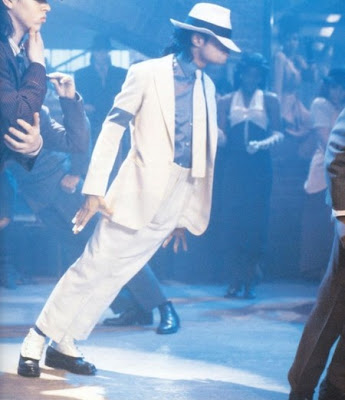Rest In Peace

Beautiful Music in Portuguese
 I know. I get it. I have a problem. Apparently I have an inability to refrain from speaking about Madredeus every couple of days. But it’s so hard to resist them. On this 3rd month birthday of Caipirinha Lounge I want to share with you a couple of songs from their album dubbed Madredeus Electrónico. The first time I got my hands on this album I freaked out. “What?! Electronic Madredeus? They’re adding electronic elements to the pure acoustic and vocal bliss that is Madredeus?” I declared blasphemy before I even heard one song.
I know. I get it. I have a problem. Apparently I have an inability to refrain from speaking about Madredeus every couple of days. But it’s so hard to resist them. On this 3rd month birthday of Caipirinha Lounge I want to share with you a couple of songs from their album dubbed Madredeus Electrónico. The first time I got my hands on this album I freaked out. “What?! Electronic Madredeus? They’re adding electronic elements to the pure acoustic and vocal bliss that is Madredeus?” I declared blasphemy before I even heard one song. In the post below on AM Roots I was talking about the seemingly non-existent collaboration between Angolan and Mozambican musicians. Or maybe it’s existent and I just haven’t heard or seen anything about it. But there is a much healthier collaboration between Cape Verdean, Angolan, Brazilian, and Portuguese musicians and it’s heartening to hear it. Case in point: the song Boa Sorte, a number-one hit in both Brazil and Portugal and sung originally by the Brazilian Vanessa da Mata and the American Ben Harper, was then covered by the Cape Verdean Nelson Freitas and the Portuguese-Angolan Chelsy Shantel, all of them talented artists that will be featured in this space in the tantalizingly near future (with the exception of Ben Harper). The Shantel-Freitas cover is different from the Vanessa-Ben Harper in that it is a kizombas jam…click play to hear the subtle differences.
In the post below on AM Roots I was talking about the seemingly non-existent collaboration between Angolan and Mozambican musicians. Or maybe it’s existent and I just haven’t heard or seen anything about it. But there is a much healthier collaboration between Cape Verdean, Angolan, Brazilian, and Portuguese musicians and it’s heartening to hear it. Case in point: the song Boa Sorte, a number-one hit in both Brazil and Portugal and sung originally by the Brazilian Vanessa da Mata and the American Ben Harper, was then covered by the Cape Verdean Nelson Freitas and the Portuguese-Angolan Chelsy Shantel, all of them talented artists that will be featured in this space in the tantalizingly near future (with the exception of Ben Harper). The Shantel-Freitas cover is different from the Vanessa-Ben Harper in that it is a kizombas jam…click play to hear the subtle differences. After DJ Furreta helped invent the Angolan house scene with hits like Minha Mwangole, and others in Angola (DJ Callas, DJ Malvado) continue to mix African/Angolan rhythms with deep house, this exciting new genre is catching on. Made up of DJ Nunas and Filipe Narciso, an Angolan and Mozambican respectively, AM Roots is another African house music collaboration, this time fusing traditional Angolan and Mozambican music with western deep house elements. The initials AM stand for Angola and Mozambique, and DJ Nunas and Filipe star in a partnership of two nationalities that for some reason don’t mix musically that often. While it is true that some Angolan musicians such as the boy band SSP are very popular in Mozambique, that country’s music is not as popular in Angola. But with AM Roots’ exciting new collaboration, and their decidedly fresh sound, things should start to change. The pair met in New York City three years ago and released their first series of singles through the spanking new label Nulu Music. Included here is the track He Africa, a lively, danceable track featuring Fred Mthembu. Click play and jam to it.
After DJ Furreta helped invent the Angolan house scene with hits like Minha Mwangole, and others in Angola (DJ Callas, DJ Malvado) continue to mix African/Angolan rhythms with deep house, this exciting new genre is catching on. Made up of DJ Nunas and Filipe Narciso, an Angolan and Mozambican respectively, AM Roots is another African house music collaboration, this time fusing traditional Angolan and Mozambican music with western deep house elements. The initials AM stand for Angola and Mozambique, and DJ Nunas and Filipe star in a partnership of two nationalities that for some reason don’t mix musically that often. While it is true that some Angolan musicians such as the boy band SSP are very popular in Mozambique, that country’s music is not as popular in Angola. But with AM Roots’ exciting new collaboration, and their decidedly fresh sound, things should start to change. The pair met in New York City three years ago and released their first series of singles through the spanking new label Nulu Music. Included here is the track He Africa, a lively, danceable track featuring Fred Mthembu. Click play and jam to it. A lot of American rappers like to say they are from the ‘hood’. Such ‘hoods’ still usually have running water and electricity. MC Katrogipolongopongo (or just MC Kapa if you don't feel like a tongue twister right now) is from the real ‘hood’, the one in Luanda with no running water, electricity, or discernible sewage system. By comparison, wherever 50 Cent is from would be a huge upgrade in living standards. Speaking of 50 Cent, when he went to Luanda to give a concert a couple of years ago, his chain was stolen onstage, mid song. He refused to continue with the show unless his chain was returned…it was never returned, and the show ended then and there. 50 hasn't been back to Angola since.
A lot of American rappers like to say they are from the ‘hood’. Such ‘hoods’ still usually have running water and electricity. MC Katrogipolongopongo (or just MC Kapa if you don't feel like a tongue twister right now) is from the real ‘hood’, the one in Luanda with no running water, electricity, or discernible sewage system. By comparison, wherever 50 Cent is from would be a huge upgrade in living standards. Speaking of 50 Cent, when he went to Luanda to give a concert a couple of years ago, his chain was stolen onstage, mid song. He refused to continue with the show unless his chain was returned…it was never returned, and the show ended then and there. 50 hasn't been back to Angola since.
 Amália Rodigures is the face and soul of fado music. It’s because of her efforts that the genre became known worldwide. Her career spanned 40 years and her popularity led her to perform in all corners of the world, from USA to France to Israel to Italy and even Japan. Amália’s music offered emotional respite from the brutal years of Salazar’s regime, a way for the Portuguese to forget the daily struggles of life under a dictator. Here is a recording in which she shares with us what she loves about Lisbon.
Amália Rodigures is the face and soul of fado music. It’s because of her efforts that the genre became known worldwide. Her career spanned 40 years and her popularity led her to perform in all corners of the world, from USA to France to Israel to Italy and even Japan. Amália’s music offered emotional respite from the brutal years of Salazar’s regime, a way for the Portuguese to forget the daily struggles of life under a dictator. Here is a recording in which she shares with us what she loves about Lisbon. I once went to see a concert by popular Angolan R&B singer Anselmo Ralph in Cine Karl Marx in Luanda. One of his guests was a Mr. Yuri da Cunha, a singer that I had heard little of at the time and had even dismissed attending his concert on the beach the day before because I assumed his music was for ‘old people’. Huge mistake on my part. In the Anselmo Ralph concert, Yuri da Cunha completely stole the show. He came into the stage and, through his antics, completely invigorated the audience and worked them into a frenzy. He is a showman extraordinaire and has an impressive talent for semba on top of that. He is a storyteller on his songs, and many of them detail really funny episodes common to Angolans but appreciated by his audience, which includes Portuguese, Brazilians, and Mozambicans, among others. Here is the video for my favorite song of his, and included here are two of his popular semba jams, with As Kizombas featuring popular Angolan singer Proletário.
I once went to see a concert by popular Angolan R&B singer Anselmo Ralph in Cine Karl Marx in Luanda. One of his guests was a Mr. Yuri da Cunha, a singer that I had heard little of at the time and had even dismissed attending his concert on the beach the day before because I assumed his music was for ‘old people’. Huge mistake on my part. In the Anselmo Ralph concert, Yuri da Cunha completely stole the show. He came into the stage and, through his antics, completely invigorated the audience and worked them into a frenzy. He is a showman extraordinaire and has an impressive talent for semba on top of that. He is a storyteller on his songs, and many of them detail really funny episodes common to Angolans but appreciated by his audience, which includes Portuguese, Brazilians, and Mozambicans, among others. Here is the video for my favorite song of his, and included here are two of his popular semba jams, with As Kizombas featuring popular Angolan singer Proletário. Composed of Raúl Indipwo and Milo MacMahon, Duo Ouro Negro is perhaps the greatest Angolan music team in history. With a career that spanned 40 years, begun long before Angola was even an independent country, and a host of intercontinental hits, Duo Ouro Negro is the stuff of legends. My dad grew up listening to them, and long after I was born theirs was still one of the only CDs he would play in the car, along with a lot of Bonga and the occasional Madredeus and Dulce Pontes. 53 years after their creation and I’m still listening to and enjoying their music. That is what timelessness is. The duo was the first to expose Angolan music to an international audience, having performed in places like Spain, Switzerland, France, Monaco, the US, and Canada. Today, neither of the two survives, with Raul having passed away in 2006, about 20 years after his friend and coworker Milo. Raúl was still making music when he died.
Composed of Raúl Indipwo and Milo MacMahon, Duo Ouro Negro is perhaps the greatest Angolan music team in history. With a career that spanned 40 years, begun long before Angola was even an independent country, and a host of intercontinental hits, Duo Ouro Negro is the stuff of legends. My dad grew up listening to them, and long after I was born theirs was still one of the only CDs he would play in the car, along with a lot of Bonga and the occasional Madredeus and Dulce Pontes. 53 years after their creation and I’m still listening to and enjoying their music. That is what timelessness is. The duo was the first to expose Angolan music to an international audience, having performed in places like Spain, Switzerland, France, Monaco, the US, and Canada. Today, neither of the two survives, with Raul having passed away in 2006, about 20 years after his friend and coworker Milo. Raúl was still making music when he died.